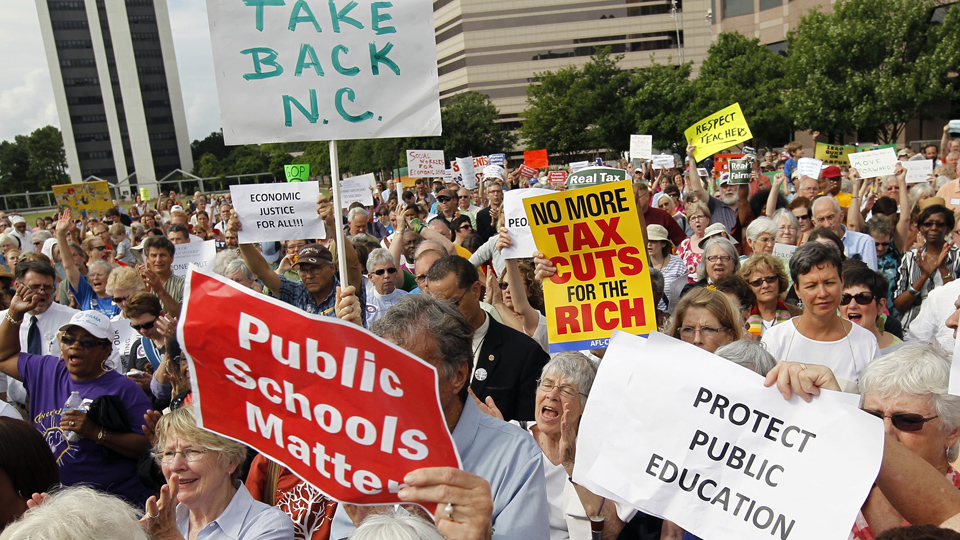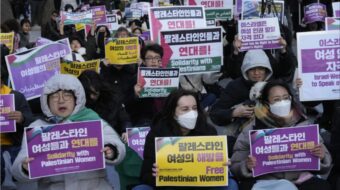
Just less than half of Americans, mainly white middle and upper income earners, chose this election to express their allegiance to the right-wing populist, scapegoating, angry, and fearful message that Trump peddles. America is no longer the exception to the wave of white nationalist economic populism that has swept through many democracies. It is time to ask our friends in Italy, in Britain, in India, in the Philippines, and in other countries where hard-line, far right-wing candidates or issues have won: how can we work together across oceans and continents to prevent the further rise of right-wing populism? The mirror that yesterday’s vote count held up reflects a divided electorate and an even more deeply divided society.
Such divisions aren’t new; they date back at least to the Goldwater era. The threats are many. The question is, how will Americans respond?
Trump will likely almost immediately nominate a conservative justice to the Supreme Court, with more to follow if and when the older justices step down. Journalists will now find themselves under threat, under increased surveillance and pressure to report what Trump wants. Muslims, Latinos, immigrants, African Americans and Jews will be subjected to increased threats and harassment from racists who are emboldened by a Trump victory.
People of color could be harmed or perhaps even killed. Workers fighting for an increase in the minimum wage and for a union and rights in low-wage industries will experience harsher crackdowns by employers, who may also have law enforcement on their side. Agencies such as the National Labor Relations Board, which is tasked with enforcing labor law, will likely see their budgets slashed. The militia movements and the white nationalist groups (which in some cases have members in common with one another) will gain new legitimacy in Washington.
Corporations and industries will get in line with their hands out and Trump will reward those who supported his candidacy. The tax code will change to reflect his whimsy. His tantrums could dictate foreign policy, beginning with the relationship with Mexico (where the peso initially fell by 13 percent following the announcement of a Trump victory, and is slowly recovering). As commander-in-chief of the armed forces, he could use whatever weapons and tools he wishes to push his foreign policy agenda. The federal agencies that are tasked with implementing his agenda will find themselves having to carry out mass deportation orders and other xenophobia- and Islamophobia-driven measures.
Trump has promised to run the country like a business, and he will try to do this. It will fail. Markets will react poorly to his habits such as not paying debts, skipping out of obligations and weaseling away from agreements and contracts. He will try to pass legislation through Congress that will beggar belief, such as legalizing more draconian versions of the death penalty and outlawing Muslims. His scapegoating of vulnerable people for the problems of Middle America will continue, and people may be asked to inform on each other. He will roll back the evolving diplomatic relations with Cuba. He will help Congress to repeal Obamacare and cut more people out of their voting rights.
The threats are many. The question is, how will Americans respond?
The good news is that the forces that will check Trump’s power are all around us. The movements for struggle are needed now more than ever in the past eight years. All who dissent from President Trump are needed to support them. Moral Mondays, Black Lives Matter, the immigrants’ rights movement, the climate justice movement, the reproductive justice movement, the labor movement.
Anyone who viewed these movements growing and cheered from the sidelines is needed in the streets alongside the others. How can we fight a Trump agenda? Look to the leaders and activists in these movements. Follow their lead. Listen. Find concrete ways to support your community. Know what your friends and family are capable of and be ready to ask it of them. Ask it of yourself: what can I do? How can we protect our democracy and place a limit on the power Trump will wield? Our grandparents fled fascism and violence, poverty and war. They came to the United States, found their communities here — or they fought fascism and austerity where it took root. We can do the same for our kids and grandkids. The old-school organizing methods do still work.
It won’t be easy. It will be necessary. I talked to my own kids about it this morning. They say they’re ready. I have no choice but to follow their lead.












Comments